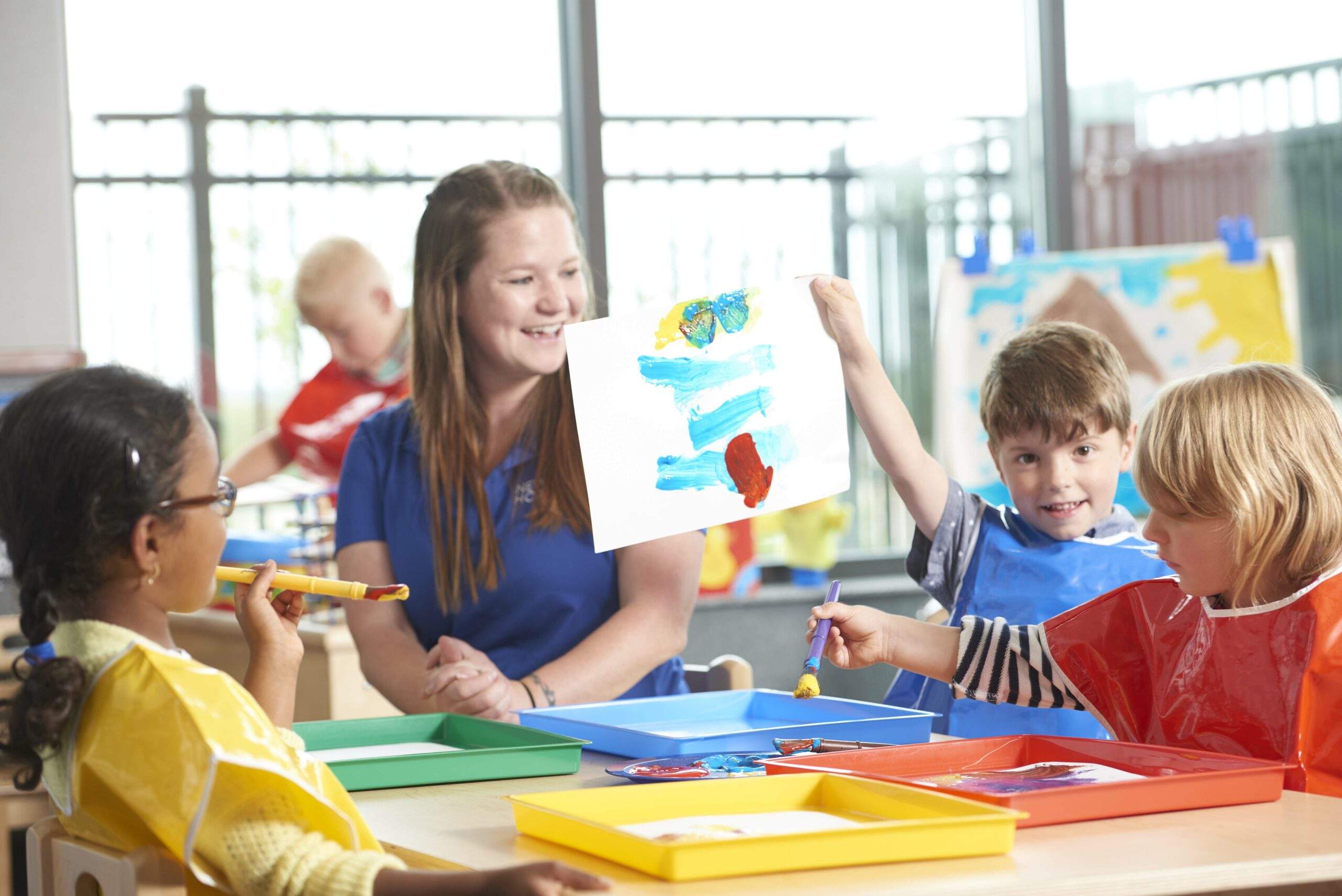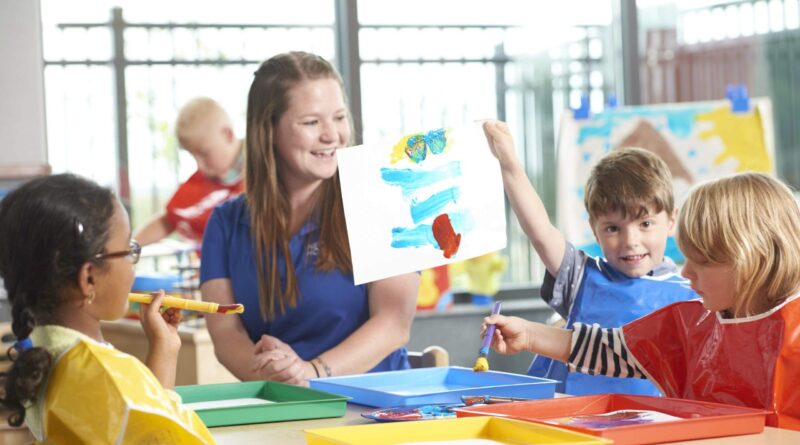The Impact of Early Childhood Education on Lifelong Learning

Introduction
Early childhood education (ECE) has gained increasing recognition as a cornerstone for lifelong learning and overall development. While the long-term benefits of ECE may not always be immediately visible, research continually underscores its profound influence on cognitive, social, emotional, and physical development. From shaping future academic achievements to influencing social skills and even economic stability, the significance of early childhood education extends far beyond the first few years of life. This article explores how early childhood education impacts lifelong learning, delving into key areas like cognitive development, social-emotional growth, and the building of foundational skills that lead to lifelong success.
Cognitive Development: Building the Brain’s Infrastructure
Cognitive development is one of the most extensively studied areas in early childhood education, and it’s clear that the first few years of life are critical for brain development. During this period, a child’s brain is highly plastic, meaning it can form new connections rapidly in response to stimuli. High-quality ECE provides children with enriched environments where they are exposed to language, numbers, shapes, problem-solving activities, and more. This exposure is vital in promoting cognitive growth and developing neural pathways that serve as the foundation for future learning.
Research from neuroscientists shows that children who engage in stimulating educational activities during their early years perform better on cognitive tests in later life. Early childhood programs that prioritize structured play, problem-solving tasks, and early literacy activities help children develop essential skills such as memory, attention, reasoning, and problem-solving. These skills are not only crucial for academic success but are also necessary for navigating everyday challenges throughout life.
For instance, the Perry Preschool Project, a landmark study conducted in the 1960s, tracked a group of children who received high-quality early childhood education. The findings revealed that these children demonstrated significantly better academic performance and higher IQ scores than their peers who did not receive similar interventions. As adults, they also exhibited higher levels of employment and income, proving the long-term cognitive benefits of early educational experiences.
Social and Emotional Development: Laying the Groundwork for Relationships
The social and emotional benefits of early childhood education are equally important. During the first few years of life, children begin learning how to regulate their emotions, form relationships, and develop empathy. These skills form the basis for healthy social interactions and emotional well-being in adulthood. High-quality early childhood programs teach children to work cooperatively, share, resolve conflicts, and express their feelings in a healthy manner. These skills, often referred to as “soft skills” or “non-cognitive skills,” are critical for lifelong success in both personal and professional domains.
Children who attend early childhood education programs typically have more opportunities to interact with peers, thus learning important social behaviors such as cooperation, communication, and teamwork. They also receive guidance from educators who model emotional regulation and positive behavior, helping children understand how to navigate social situations constructively.
One of the key emotional developments during early childhood is the building of self-confidence. In a supportive early learning environment, children feel secure and valued, which fosters a positive self-image. This confidence translates into a willingness to take risks, explore new ideas, and persist in the face of challenges. As these children grow, they are more likely to engage in lifelong learning activities, such as pursuing further education or acquiring new skills in the workplace.
Moreover, emotional resilience, which is developed in part through early education, plays a significant role in lifelong learning. Children who learn how to manage frustration, cope with failure, and maintain a positive attitude toward learning are more likely to persevere in the face of academic or life challenges. This resilience is a valuable trait that will help them succeed in various aspects of their lives, from personal relationships to professional endeavors.
Language and Literacy Development: Creating Lifelong Communicators
One of the primary focuses of early childhood education is language and literacy development, which is crucial for later academic success and communication skills. Early childhood education programs that emphasize reading, storytelling, and verbal interaction help children build a strong foundation in language acquisition. Research shows that the earlier a child is exposed to language-rich environments, the more advanced their language skills will be throughout their lives.
Children who participate in high-quality early childhood education programs are more likely to enter school with better vocabulary, comprehension, and reading skills. This advantage often leads to higher academic achievement in the later years of education, as language skills are essential for understanding complex subjects like mathematics, science, and social studies. Strong literacy skills also enhance critical thinking abilities, allowing individuals to process information, analyze arguments, and make informed decisions—skills that are valuable throughout life.
Moreover, effective communication is an essential skill in the workforce and social relationships. Adults with strong literacy and language skills are better equipped to adapt to changing job markets, pursue professional development opportunities, and engage in lifelong learning. Early childhood education plays a vital role in fostering these foundational skills that serve as building blocks for future success.
The Role of Play in Lifelong Learning
Play is a fundamental component of early childhood education, but its significance is often overlooked. Play is not just about fun; it is a powerful tool for learning and development. Through play, children explore the world around them, experiment with new ideas, and develop critical problem-solving and decision-making skills. Whether it’s building structures with blocks, engaging in imaginative play, or participating in group games, these activities help children develop creativity, flexibility, and adaptability—skills that are essential for lifelong learning.
In fact, many of the skills acquired through play mirror those required in the adult world. For example, imaginative play helps children develop creativity and innovation, both of which are highly valued in today’s dynamic workforce. Group play fosters collaboration and teamwork, essential for professional environments. Even solitary play enhances focus and perseverance, which are necessary for independent learning and personal growth.
Moreover, play encourages a love for learning. When children are given the freedom to explore and experiment in a supportive environment, they develop a sense of curiosity and a desire to learn. This intrinsic motivation is a key factor in lifelong learning, as individuals who enjoy learning are more likely to seek out new knowledge and skills throughout their lives.
Early Childhood Education and Economic Mobility
The economic benefits of early childhood education are substantial, not just for individuals but for society as a whole. Investing in early education has been shown to reduce income inequality and increase economic mobility. Children who attend high-quality early education programs are more likely to graduate from high school, attend college, and secure higher-paying jobs as adults. This economic success, in turn, benefits society by increasing tax revenue and reducing the need for social services.
A study by economist James Heckman found that for every dollar invested in early childhood education, society gains up to $7 in economic returns. These returns come in the form of reduced crime rates, lower special education costs, and higher lifetime earnings for individuals who received early educational interventions.
Furthermore, early childhood education can break the cycle of poverty. Children from low-income families who attend high-quality preschool programs have better educational and economic outcomes than their peers who do not receive such interventions. By providing all children, regardless of socioeconomic background, with access to quality early education, society can create a more equitable future where all individuals have the opportunity to succeed.
Conclusion: Early Education as the Foundation for Lifelong Learning
The impact of early childhood education on lifelong learning cannot be overstated. High-quality early childhood programs lay the foundation for cognitive, social, emotional, and physical development, all of which are critical for success later in life. By fostering essential skills such as problem-solving, emotional regulation, language acquisition, and creativity, early education equips individuals with the tools they need to navigate the complexities of the modern world.
As society continues to evolve, the importance of lifelong learning becomes increasingly clear. In a rapidly changing job market, individuals must be able to adapt and learn new skills throughout their lives. Early childhood education not only prepares children for academic success but also instills in them a love for learning and the resilience to overcome challenges. Investing in early education is, therefore, an investment in the future—one that benefits individuals and society as a whole.

